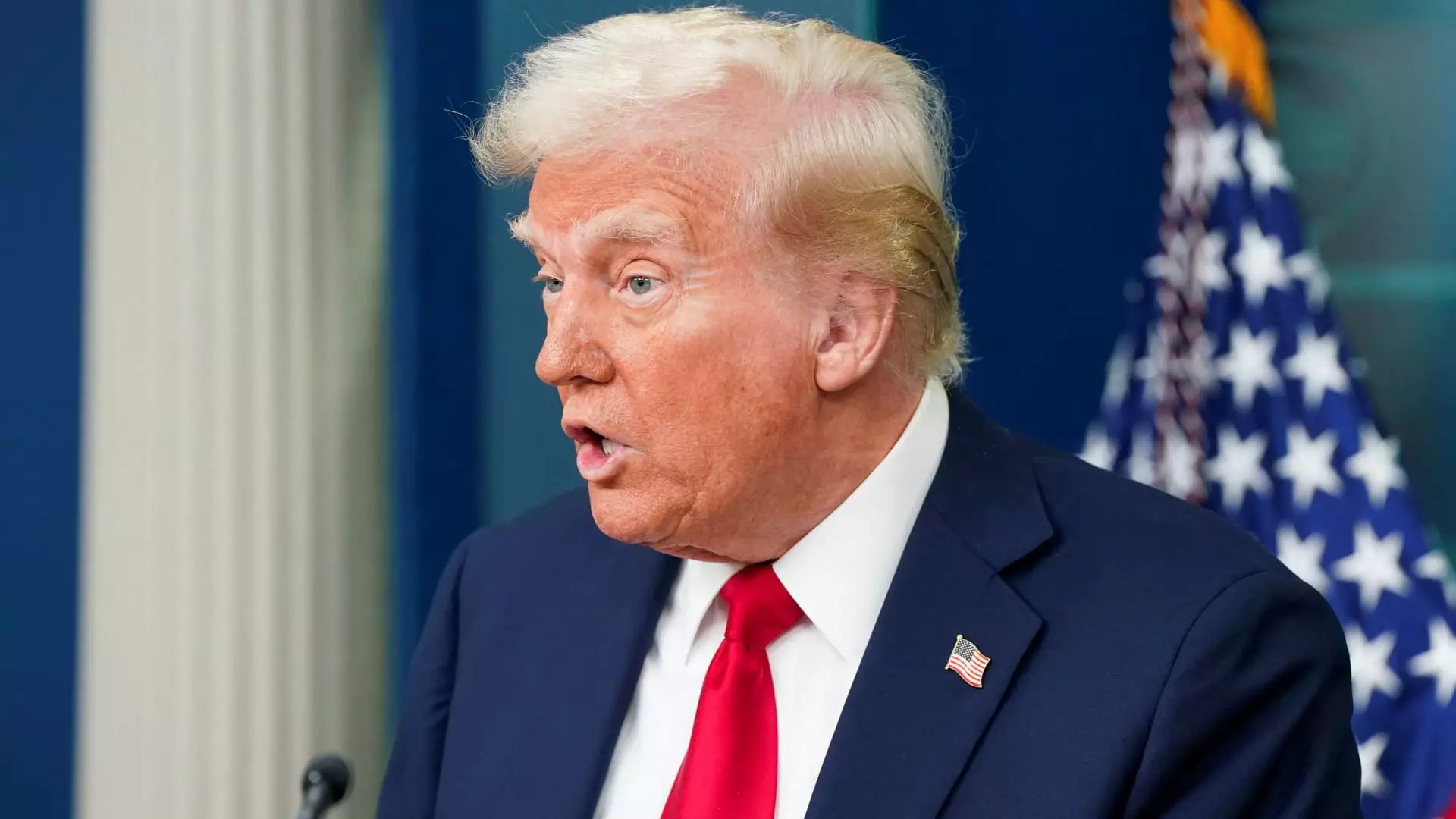On Wednesday night, a tragic midair collision occurred over Washington, D.C., involving an American Airlines regional jet and an Army Black Hawk helicopter. The incident marks the deadliest aviation mishap in the U.S. since November 2001, claiming the lives of all 64 passengers aboard the jet and the three soldiers in the helicopter. As the details of this devastating event emerge, it is disheartening to witness political leaders using such tragedies to further their agendas rather than focusing on supporting the victims’ families and understanding the causes behind this heartbreaking incident.
In an unexpected turn, former President Donald Trump used the tragedy to criticize current President Joe Biden and the Democratic Party’s diversity, equity, and inclusion (DEI) measures. During a press conference at the White House, he posited that these policies might have contributed to the collision. Trump’s commentary came swiftly after he had initially issued condolences to the victims’ families, indicating a rapid shift from empathy to political attack. It seems almost instinctual for Trump to revert to familiar tactics of vilifying his political adversaries, especially when an opportunity arises, regardless of the sensitivity surrounding such a somber event.
Pointing fingers in the absence of evidence only serves to muddy the waters further, making it crucial for Trump’s comments to be examined critically. The investigation into the collision is still in its early stages, and conflating the situation with political narratives detracts from the focus needed to ensure accountability and improvements in aviation safety. Trump’s claims regarding DEI remain unfounded and speculative at this point, raising questions about the political responsibility in relation to public discourse following such incidents. Escalating such narratives risks overshadowing crucial aspects of the investigation that must be addressed.
As first responders transition from a rescue mission to a recovery operation, having already recovered at least 28 bodies from the Potomac River, it becomes increasingly vital for political leaders to remember the real human cost of such tragedies. Instead of leveraging mourning as a political tool, there should be a unified effort to honor the lives lost and to support ongoing investigations that can educate and improve future air traffic safety measures. This prevailing need for compassion should transcend partisan politics.
Incidents like the tragic collision should evoke profound reflection about aviation safety and our responsibilities toward those affected by such calamities. While political discourse often veers into contentious territory, prioritizing empathy and constructive dialogue about solutions should take precedence. This event presents an opportunity for leaders across the political spectrum to showcase a degree of unity and focus on the larger implications for national safety rather than extracting blame for political advantage.


Leave a Reply